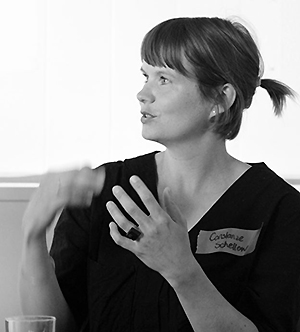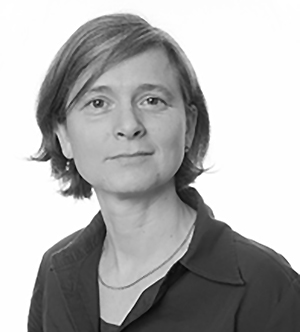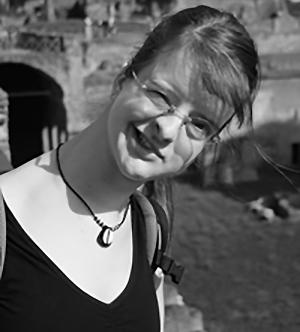Here is an essay by Adrian Miles dealing with some central issues concerning the possibilities of academic hypertext writing. While it might be somewhat outdated (2001), it still gives an idea of some of the “dangers” and advantages of the media.
Monatsarchiv für January 2012
Dear All
To explore the possibility of a single-authored or joint publication in today’s workshop, please find below a list of journals and book series for which I either act as the General Editor (EP), an editorial board member (CP, W&T) or an affiliate happy to establish ‘first contact’ or mediate on your behalf.
@you and world: If you are the editor of any other journal or book series that you’d like to advertise as a possible forum for the participants of this and future Winter School, please add your title/link as a comment or separate post. We’d particularly welcome online/open access possibilities, even ‘academic hypertext’ (see post David Jara above) Read more
Dear guest lecturers, dear participants at the first Bernese Winter School,
First of all, allow me to welcome you to Schloss Münchenwiler and to thank you for making the journey, in some cases from as far afield as Scotland, Belarus and the USA.
The Winter School is being organised by the Graduate School (GS@IASH) of the Philosophical-Historical Faculty, University of Berne, with the principal aim of offering a forum of exchange and critical debate to graduate students and researchers in the humanities and social sciences. Sponsored by the Stiftung Mercator Schweiz, the Winter School will take place in four consecutive years, focusing in turn on ‘transformations of knowledge’, ‘achronies in (global) processes of development’, ‘symbolic and aesthetic dimensions of change’, and the ‘worldliness of the humanities’. Read more
The European Meeting of the Society for Science, Literature and the Arts takes place in London, 21-23 June 2012. This year’s conference is dedicated to the theme of “sound” broadly construed:
http://www.exhibitionroad.com/supersonix
For the artist-researchers among you (Constanze, Julia, Bettina?) and others who’d like to visualize their knowledge production, this Call might be of interest:
Journal for Artistic Research – JAR 2
JAR is a free online journal that focuses on artistic practice as research, re-negotiates art’s relationship to academia and couples the multi-media and social capabilities of the web with peer-reviewing and scholarly rigour. Read more
 MaRking Difference: On the Productivity of Concepts of Negation, Negativity, and Absence in Contemporary Dance Discourse (working title)
MaRking Difference: On the Productivity of Concepts of Negation, Negativity, and Absence in Contemporary Dance Discourse (working title)
In Dance and Theater Studies, conceptions of “movement” or “presence” on the stage are, with increasing frequency, undergoing reformulation via negative concepts such as “absence” or “stasis”. Focusing on recent writings in Dance Studies, this project investigates the range, related discourses, and effectiveness of these terminologies.
Influential publications have taken distance from presence as the key category for a determination of the specific performativity of dance. Instead, concepts of absence and negativity are used, by means of the analysis of pieces by Jérôme Bel, Xavier Le Roy and Meg Stuart, among others, in order to formulate a redefinition of an “ontology” of choreography which is accompanied by theoretical gestures of dissociation from positions in Theatre Studies, Culture Studies and Performance Studies. The project investigates the extent to which such concepts in Dance Studies and in analyzed excerpts of choreographic practice are characterized by a double interaction with concepts of “absence” and “negativity” in philosophy. This perspectivation enables a consideration of both fields, Dance Studies and philosophy, in relation to one another and simultaneously allows the spectrum of concepts ranging from absence to negativity to be understood as a discourse that evolves between them. Read more
 The ethics of Yahya ibn Adi. An ethical debate between Jewish, Muslim and Christian thinkers in Baghdad of the early middle ages? (working title)
The ethics of Yahya ibn Adi. An ethical debate between Jewish, Muslim and Christian thinkers in Baghdad of the early middle ages? (working title)
Baghdad of the 10th century – a melting pot of cultures, religions and scientific scholarship, as well as the centre of governance of the Abbasid Caliphate and the Buyid rulers– seem to offer the intellectual platform for some influential philosophers to conceive elementary writings of moral philosophy. The contemporary thought in those days was reflected in a brisk culture of polemics between and within different religious groups. The reception of Hellenistic philosophy among others made up the methodical as well as the topical setting. Thereto pertaining the gnomological collections (moral quotes and anecdotes of the ancients), moral tractates attributed to Galen and Aristotle’s Nicomachean Ethics, which where translated from Greek and Syriac into Arabic as early as the 9th and the beginning of the 10th century. At least since the dissemination of these writings among the dependants of the Arabic speaking community, one can assume a debate in moral philosophy, which reached far beyond the various circles of scholarship. Read more
 Neither hypnosis, nor the study of syphilis, nor the debate on Friedrich’s III. death of throat cancer – Arthur Schnitzler has followed the medical discourse of his time and participated in its shaping. His Medizinische Schriften documents this participation in a multitude of different reviews, reports, and the only independent study Über funktionelle Aphonie und deren Behandlung durch Hypnose und Suggestion. In this text materia Schnitzler’s comments on his contemporaries’ medical works and the Viennese School present a well-grounded analysis of the situation of the medical profession during his time. These texts demonstrate different kinds of knowledge at the same time: Knowledge about the treatment of hysteria, the aetiology of syphilis, the arguments of hereditary theories and other issues. The extensive opus of Schnitzler’s literary texts stands next to this medical discourse, coeval varies and expounds its problems and therefore transforms parts of this medical knowledge. Read more
Neither hypnosis, nor the study of syphilis, nor the debate on Friedrich’s III. death of throat cancer – Arthur Schnitzler has followed the medical discourse of his time and participated in its shaping. His Medizinische Schriften documents this participation in a multitude of different reviews, reports, and the only independent study Über funktionelle Aphonie und deren Behandlung durch Hypnose und Suggestion. In this text materia Schnitzler’s comments on his contemporaries’ medical works and the Viennese School present a well-grounded analysis of the situation of the medical profession during his time. These texts demonstrate different kinds of knowledge at the same time: Knowledge about the treatment of hysteria, the aetiology of syphilis, the arguments of hereditary theories and other issues. The extensive opus of Schnitzler’s literary texts stands next to this medical discourse, coeval varies and expounds its problems and therefore transforms parts of this medical knowledge. Read more
Companies with international ambitions are increasingly becoming global players. Many of them have decided to fight for their share of the international market, or even for market leadership through such activities as company acquisition or the establishment of joint ventures, as well as by engaging in various other types of cooperation with companies abroad. Such partnerships are now more rapidly attainable than ever before, thanks to modern media of communication and increasing mobility, among other things. Consequently, these global players have a constant need to recreate their corporate culture and identity. Read more


